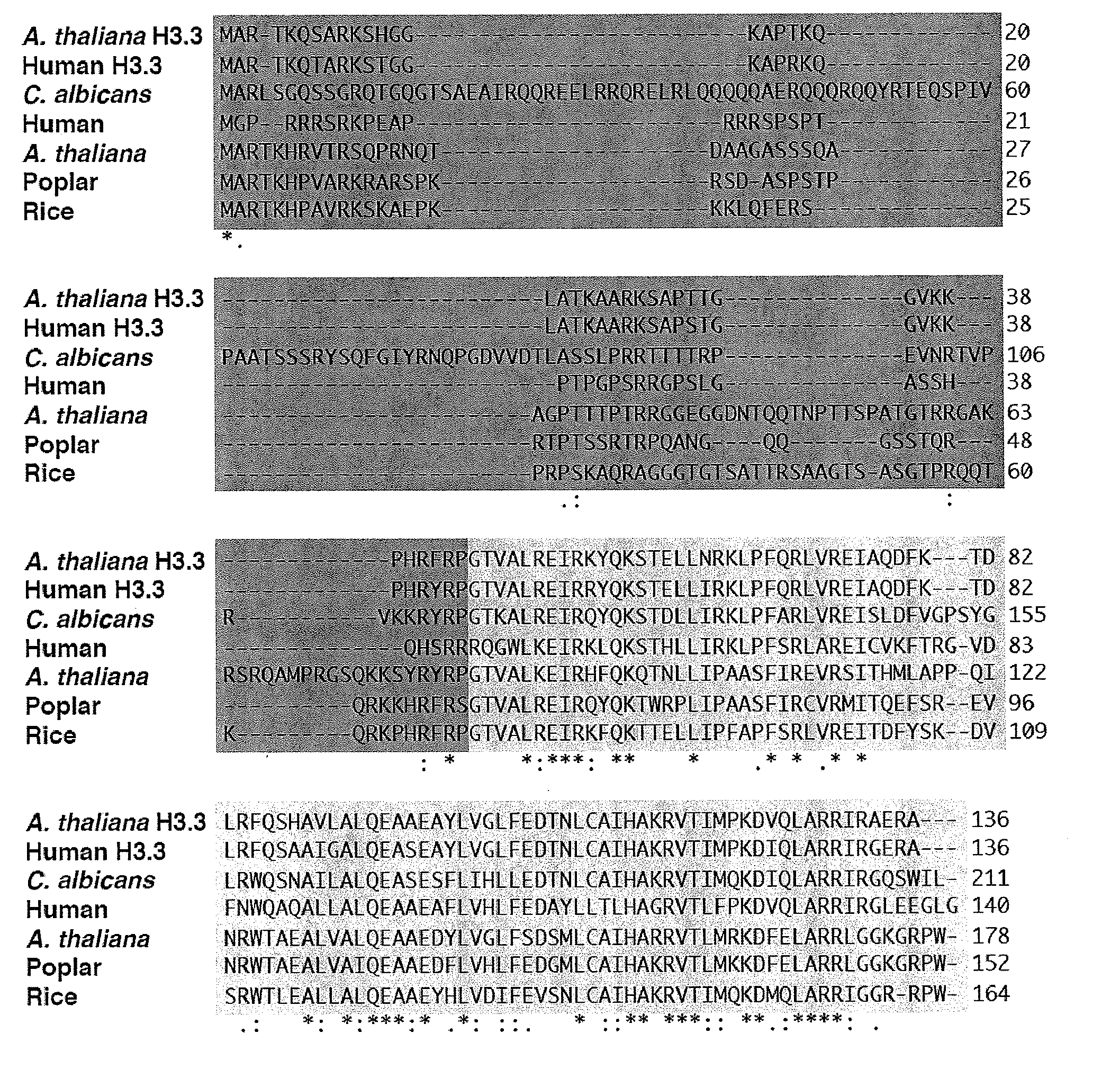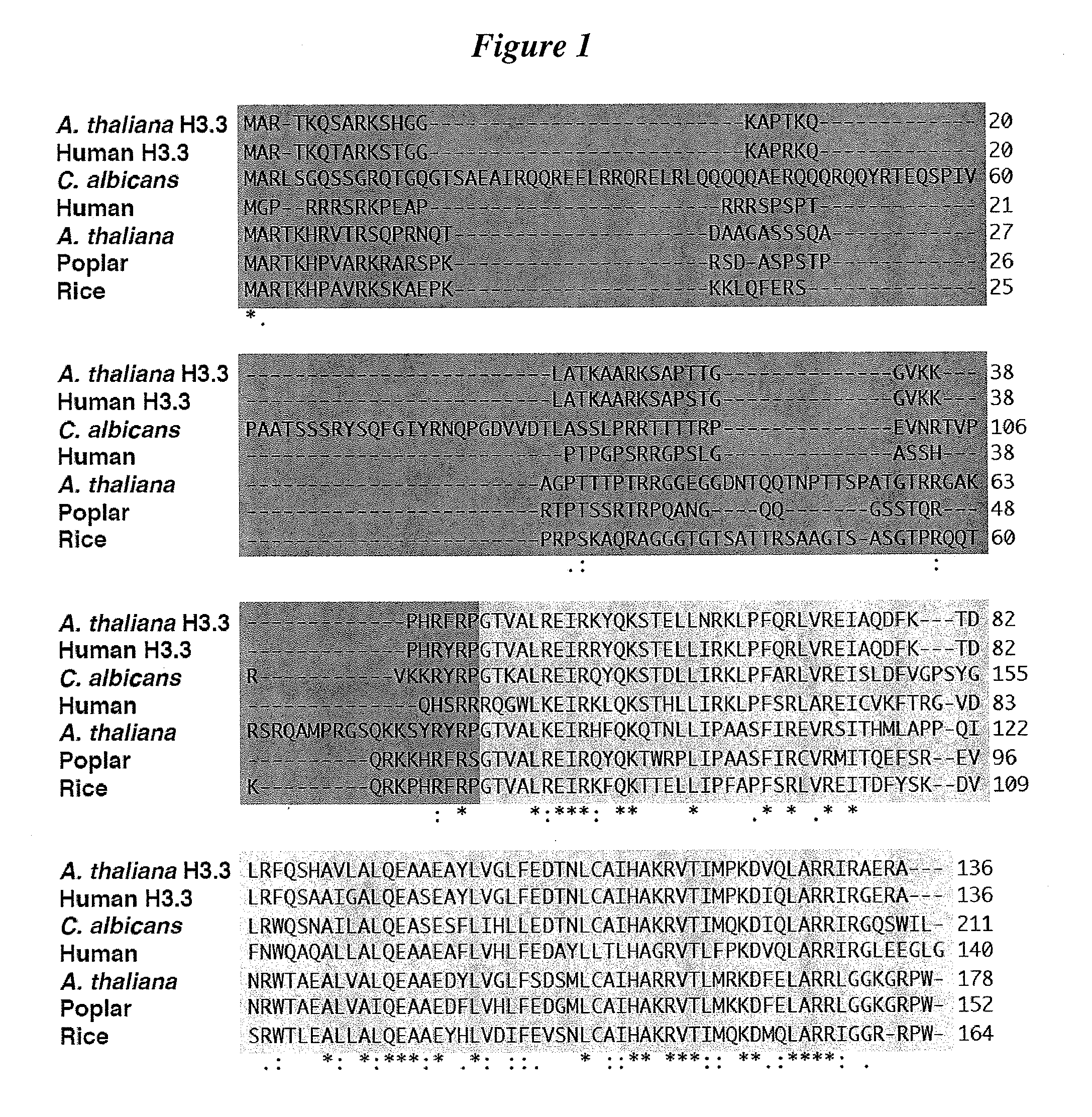Generation of haploid plants and improved plant breeding
a technology of plant breeding and haploid plants, applied in the field of plant breeding, can solve the problem that the true homozygosity of all traits is not even achievable by conventional breeding methods, and achieve the effect of increasing the cumulative alignment scor
- Summary
- Abstract
- Description
- Claims
- Application Information
AI Technical Summary
Benefits of technology
Problems solved by technology
Method used
Image
Examples
examples
[0136]The following examples are offered to illustrate, but not to limit the claimed invention.
[0137]Production of haploid plants that inherit chromosomes from only one parent can greatly accelerate plant breeding (Dunwell, J. M., Plant Biotechnol J in press; Forster, B. P. et al., Trends Plant Sci 12:368-75 (2007); Forster, B. P. & Thomas, W. T. B. in Plant Breeding Reviews (ed. Janick, J.) 57-88 (John Wiley & Sons, Inc., 2005)). Haploids generated from a heterozygous individual and converted to diploid create instant homozygous lines, bypassing generations of inbreeding. Two methods are generally used to produce haploids: First, cultured gametophyte cells may be regenerated into haploid plants (Guha, S. & Maheshwari, S. C., Nature 204:497 (1964)), but many species and genotypes are recalcitrant to this process (Forster, B. P. et al., Trends Plant Sci 12:368-75 (2007); Wedzony, M. et al. in Advances in Haploid Production in Higher Plants (eds. Touraev, A., Forster, B. P. & Jain, S....
example 2
GFP-Maizetailswap Creates F1 Haploids in a Cross to Wild Type
[0168]A chimera was created in which the A. thaliana CENH3 tail from CENH3 is replaced with the CENH3 tail domain (SEQ ID NO:102) from maize (Zea mays), thereby generating a fusion of the maize CENH3 tail and A. thaliana CENH3 histone-fold domain, and transformed the fusion into cenh3-1 heterozygotes. As expected, this GFP-maizetailswap protein was targeted to kinetochores and rescued the embryo-lethal phenotype of cenh3-1. Complemented plants were more sterile than GFP-tailswap complemented plants, but had limited fertility when used as the female. When cenh3-1 GFP-maizetailswap females were crossed to wild-type males, 2 haploids, 3 diploids and 5 aneuploids were found among a total of 10 F1 progeny.
mCherry-Tailswap Creates F1 Haploids in a Cross to Wild Type
[0169]A transgene was created in which the GFP tag in GFP-tailswap was replaced with an N-terminal mCherry tag (mCherry (SEQ ID NO:105) is a monomeric version of the ...
PUM
| Property | Measurement | Unit |
|---|---|---|
| disease resistances | aaaaa | aaaaa |
| green fluorescent | aaaaa | aaaaa |
| nucleic acid | aaaaa | aaaaa |
Abstract
Description
Claims
Application Information
 Login to View More
Login to View More - R&D
- Intellectual Property
- Life Sciences
- Materials
- Tech Scout
- Unparalleled Data Quality
- Higher Quality Content
- 60% Fewer Hallucinations
Browse by: Latest US Patents, China's latest patents, Technical Efficacy Thesaurus, Application Domain, Technology Topic, Popular Technical Reports.
© 2025 PatSnap. All rights reserved.Legal|Privacy policy|Modern Slavery Act Transparency Statement|Sitemap|About US| Contact US: help@patsnap.com


